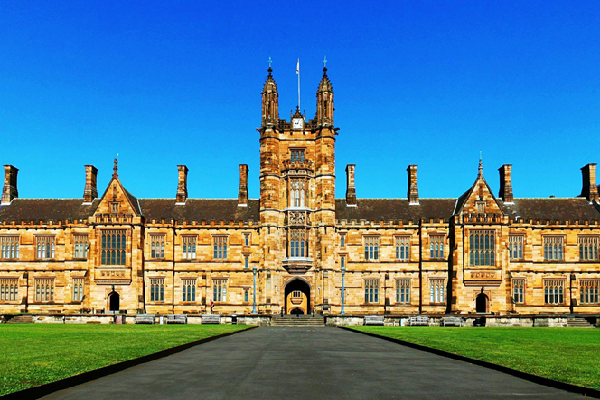University of Sydney: Associate Professor Sophie Gee Named Inaugural Vice-Chancellor Fellow
Associate Professor Sophie Gee has been appointed inaugural Vice-Chancellor Fellow at the University of Sydney. Her role will be to advise Vice-Chancellor and President Mark Scott on how to broaden and deepen public conversations around the value, identity, and future of universities in a contemporary world and the value of the humanities in universities and in public life.
Associate Professor Gee is an expert on how the skills and values of the humanities can transform the ways we work and think across many industries and fields and believes multidisciplinary collaboration is vital to address complex problems such as climate change, AI, food poverty, global conflict, and widespread equity issues.
“Associate Professor Gee is a senior scholar of high standing, with international experience, and we welcome her to the university,” said Professor Scott. “Her insights, knowledge and expertise will be enormously valuable to our community as we continue to test robust ideas and seed creativity to ensure our universities are central to the wider community’s security, prosperity and well-being.
“Universities are vital social institutions – where education and innovation will drive Australia’s future success. This is where we need to think creatively and work together across disciplines,” Professor Scott said.
“We are very fortunate to have here at the University world-leading experts to help guide us and prompt discussion and innovation, and we are very happy to be welcoming Associate Professor Gee into our community.”
Associate Professor Gee is a writer, researcher and educator with 25 years’ experience at Harvard University and Princeton University, where she is a senior academic in the Department of English. Her identity as a scholar is based on merging creative and scholarly work, and on writing and teaching so that complex academic ideas become accessible and appealing to a broad audience within the university, between disciplines, and also between the University and the wider world.
She will explore three key questions while at the University of Sydney this year:
- What are universities for? Making knowledge and returning it to the public to drive social impact and change for good.
- What are the arts, humanities and social sciences for? Communicating knowledge creatively. Teaching societies how to understand and transform human values.
- What are communities for? Connections between universities and communities as the most important reciprocal relationships of the future.
“As a Vice-Chancellor’s Fellow in 2024, my goal is to collaborate, and dream big, about creative, unexpected ways to integrate the humanities with STEM, business and social sciences, and to share these dreams with the public,” Associate Professor Gee said.
“I will work with other scholars and leaders to collaborate at a high level of mutual understanding and intellectual engagement,” she said. “I’ll start by holding peer-to-peer conversations and workshops with faculty, including through the Sydney Policy Lab, and leaders both on campus and from potential partner organisations across Sydney.
“We are living in a world defined by crisis and uncertainty,” she said. “Universities are crucial for rigorous thinking and public engagement but it’s hard to do both of those well. People tend to avoid intellectual discomfort but only by leaning into the value of what we don’t know can we find solutions to our current problems.
“We need to communicate what a given problem reveals about human emotion, motivation, perception and understanding, and humans are good at hiding and masking these things. That’s where humanities can really collaborate with other disciplines. I am excited about working with the Sydney Policy Lab on how we best model a culture of thoughtful engagement, considered debate and disagreeing well.”
Associate Professor Gee will provide advice to the Vice-Chancellor over a period of six months on how to further amplify the University of Sydney’s role in creating public knowledge, especially using our strength in arts and humanities. She will also be collaborating with the Sydney Policy Lab on efforts to invigorate the civic life of the University as well as working toward partnerships and philanthropic opportunities that grow public intellectual culture, positioning the University as a centre for rigorous debate, productive disagreement, and fearless curiosity that can give more people an active stake in Sydney’s civic life.

